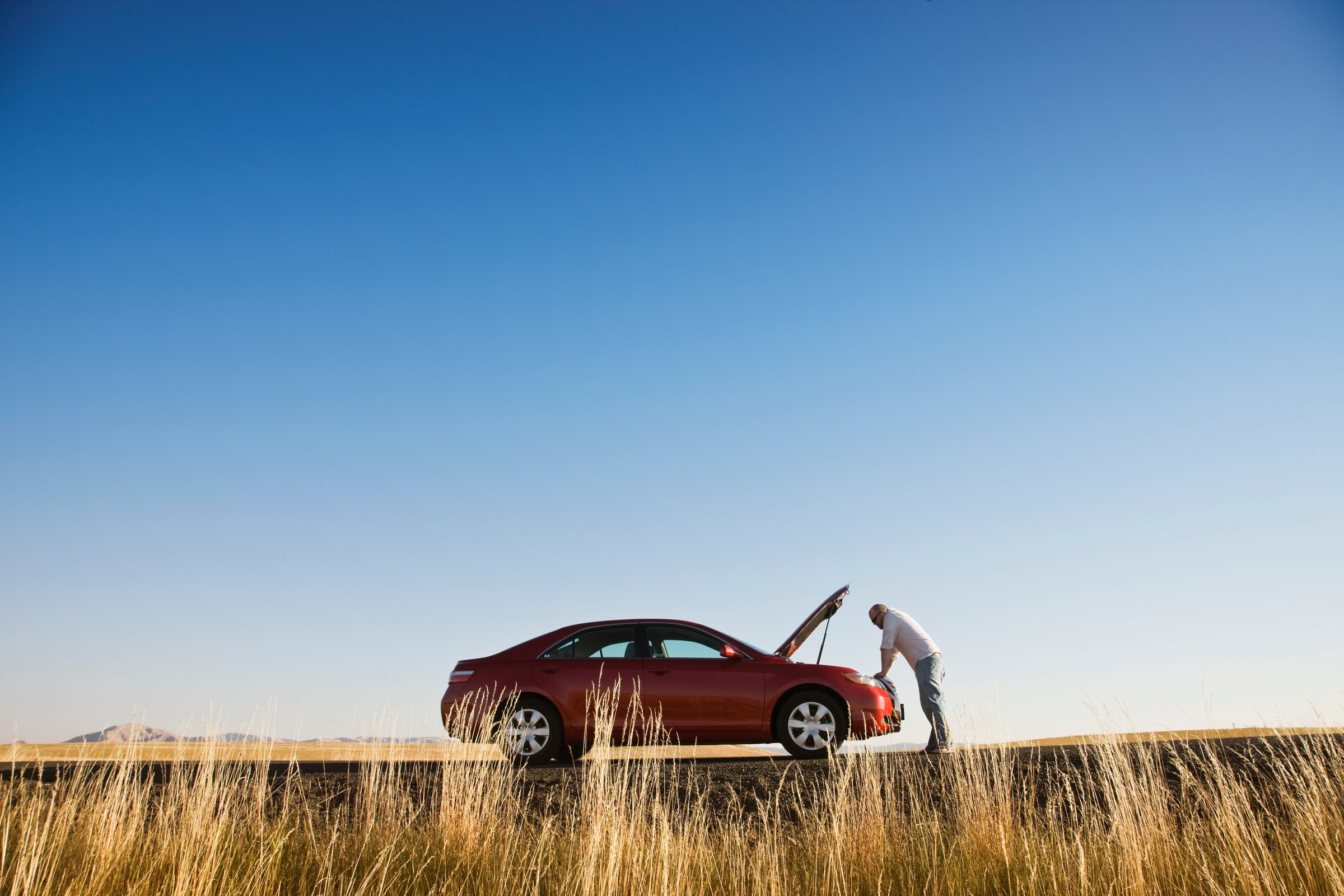
The ice storm that hit Nashville this February was the worst in 20 years. Freezing rain glazed the roads, so when one of Michael Cunnyngham’s employees discovered he had a flat tire, there was already a long queue of auto-club members ahead of him who had put in calls for help. “They said they’d be there in an hour. Then it was two hours,” recalls Cunnyngham, who runs a tech company. “Then it was the end of the day. So I thought, There has to be some Uber for wreckers,” he says, referring to the popular ride-hailing app. His search results turned up Urgent.ly, a Virginia-based startup that indeed bills itself as the Uber of roadside assistance. He called the employee and told him to download the app. “I get a really happy message from him not more than a few minutes later saying somebody’s coming,” Cunnyngham says. Within 30 minutes, the tire was fixed. “You couldn’t ask for a better experience,” he says.
Roadside assistance is a $10 billion market in the U.S.–and now tech companies are revving to disrupt it, replacing call centers with dispatch algorithms designed to locate the best nearby vehicle that can help with a lockout or winch a car out of a ditch. Entrepreneurs like Urgent.ly CEO Chris Spanos believe that motorists need an on-demand alternative to paying for insurance plans they might not use or blindly calling tow companies in their time of need, with little way to tell if they’re being overcharged. “You should only pay for service when you need it,” he argues. But taking on an industry behemoth like AAA, which has 55 million members, is going to be a long haul–especially because AAA is mapping out innovations of its own.
Urgent.ly and its main competitor, the Santa Monica, Calif.–based Honk, both offer flat rates, promise quick response times and provide maps in their apps that show users where their rescuer is with real-time updates. These companies are positioning themselves as not just a snappy service for the smartphone crowd but also a new revenue stream for towing companies. While AAA, which is a not-for-profit corporation, says it does not release exact figures for how much its contractors get paid, tow-truck operators have said it’s in the neighborhood of $25 per call. Kwame Scott, owner of Scott’s Towing in Suitland, Md., says he makes about $75 if that same call comes through his Urgent.ly app. Like Uber, these startups are taking about a 25% cut and handing the rest over to the drivers. “If technology can get into towing, then, hey, swell. We’re in,” Scott says.
Honk CEO Corey Brundage says the company started getting a series of call-and-cancel orders last year that they traced to AAA employees. “We do mystery-shop to see how services compare,” says AAA spokesperson Yolanda Cade. She emphasizes that America’s famous motor club has been around for 100 years and responds to “more than 30” million calls per year; members typically also receive travel discounts or other membership perks. AAA is a federation of 43 motor clubs around the country, which can customize what they offer. In late 2014, the Mid-Atlantic club started running RescueMeNow, a web-based on-demand service for nonmembers, which comes with a follow-up contact enticing users to join. The Southern California club has meanwhile been providing a “service tracker” that shows a real-time map in the AAA app. Some car manufacturers also offer roadside assistance as part of their warranties.
Silicon Valley investors and several national companies are betting on the new guard. Honk announced a $12 million fundraising round in March, soon after Urgent.ly announced that its app will be part of AT&T’s connected-car platform, AT&T Drive. Still, towing providers like Scott aren’t sure how revolutionary these apps will be. He says that while he might get $75 for a job placed through Urgent.ly, he’d get $100 if the customer called him directly. “It hasn’t become a major part of my business,” he says. “But it’s a nice addition.”
More Must-Reads from TIME
- Donald Trump Is TIME's 2024 Person of the Year
- Why We Chose Trump as Person of the Year
- Is Intermittent Fasting Good or Bad for You?
- The 100 Must-Read Books of 2024
- The 20 Best Christmas TV Episodes
- Column: If Optimism Feels Ridiculous Now, Try Hope
- The Future of Climate Action Is Trade Policy
- Merle Bombardieri Is Helping People Make the Baby Decision
Contact us at letters@time.com